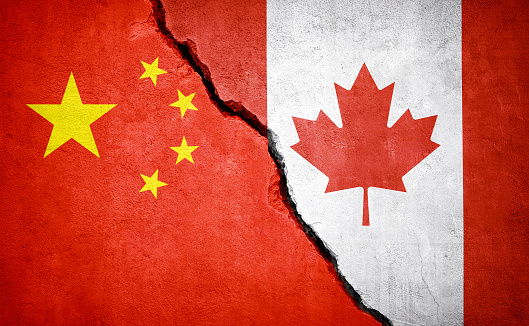China and Canada at loggerheads
News by Himasutha Reddy
Delhi, Aug 13: On December 1 , 2018, Meng Wanzhou, the Chief Financial Officer (CFO) and the deputy chair of the Board of Huawei, was detained upon her arrival at the Vancouver International Airport while she was travelling from Hong Kong to Mexico and had a stop at Vancouver for changing planes. Currently, she is under house arrest in Vancouver.
Huawei is a Chinese multinational company (MNC). It focuses on designing and manufacturing information and communication technology infrastructure and smart devices.
Why was Meng Wanzhou detained at the Vancouver International Airport?
The United States and Canada have signed an extradition treaty that states that when one country requests another country to help them detain/arrest an individual who is supposed to be punished for their criminal offence, the other country has to help.
The United States District Court of the Eastern District of New York sent in the warrant to the Canadian Court to arrest Meng Wanzhou. A warrant is a document issued by a government official that consists of a justification and gives license for carrying out the particular action.
The charge was that Huawei company took money from HSBC Bank but sent the funds to a Hong Kong-based company named Skycom. Skycom sold equipment to Iran. This was against the US sanctions. Legally, US money could not be lent to any company that traded with Iran.
In addition, according to the US District court, Meng Wanzhou lied to HSBC bank’s officer Alan Thomas, to convince them to maintain the financial relationship with her company, Huawei.
What happened after she was detained?
Meng Wanzhou received a 10 million dollars bail the same month and was house arrested with a set of conditions. With the case still being investigated since 2018, the ties between China and Canada worsened. The extradition hearings have entered the final stage in a Canadian court.
In an unrelated development, on August 10th, 2021, a Canadian, Robert Lloyd Schellenberg, was given a death sentence by the Liaoning High People’s Court. He was accused of drug smuggling in China. Robert Lloyd Schellenberg was first arrested for drug smuggling in Southern China on December 1st, 2014.
After receiving a verdict of 15 years of jail in November 2018, he appealed for another judgement. However, in one month, Robert Lloyd Schellenberg was sentenced to death. After he appealed again, the Chinese court rejected that appeal too and sentenced him to death.
The next day, on August 11th, 2021, a Canadian businessman, Michael Spavor, was sentenced to eleven years in jail for allegedly spying and sending information to foreign countries. In addition, 50,000 Chinese yuan out of his personal property were ordered to be confiscated. After his eleven years in jail, he would be deported (sent out) from China. He was detained in September 2018.
The evidence against Michael Spavor and Robert Lloyd Schellenberg hasn’t been disclosed to the public yet. However, the Canadian Prime minister, Justin Trudeau, and the minister of foreign affairs, Marc Garneau, have protested against these judgements in China.


